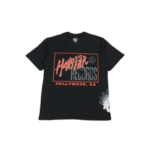According to the report by Expert Market Research (EMR), the global functional flour market is projected to grow at a CAGR of 6.5% between 2024 and 2032. This growth is primarily driven by the increasing consumer awareness regarding health and nutrition, the rising demand for gluten-free and specialty flours, and the expanding applications of functional flour in various food and beverage sectors. Functional flour, enriched with additional nutrients, fibers, and proteins, offers not only enhanced nutritional benefits but also improves the sensory qualities of food products.
The ongoing trend toward healthier eating is reshaping consumer preferences, leading to a marked shift away from traditional flours toward those that provide added health benefits. As consumers become more health-conscious, they are increasingly seeking products that not only taste good but also contribute to their overall well-being. This trend is particularly evident among consumers who are following specific dietary restrictions, such as gluten intolerance or the need for higher protein intake.
Furthermore, the growing popularity of baked goods, snacks, and ready-to-eat meals that utilize functional flour as a primary ingredient is contributing significantly to the market’s expansion. As food manufacturers innovate to cater to these health-focused trends, functional flour is being increasingly incorporated into a wide array of products, from bread and pastries to protein bars and cereals. This versatility ensures a broad market appeal, further driving demand.
In addition to the health benefits, functional flours are also gaining traction in the food industry due to their favorable cooking and baking characteristics. Products such as almond flour, coconut flour, and chickpea flour not only enhance flavor profiles but also contribute to improved texture and shelf life. The demand for clean-label products is also a notable factor, as consumers are becoming more conscious of the ingredients in their food. As a result, brands are seeking functional flours that align with clean-label trends, avoiding artificial additives while promoting natural, wholesome ingredients.
The e-commerce boom is another significant catalyst for the functional flour market’s growth. Online platforms provide consumers with easy access to a diverse range of functional flour products, catering to niche markets and dietary preferences. The convenience of online shopping combined with increased product visibility has amplified sales, allowing consumers to discover and purchase products that may not be available in local stores.
As the market progresses, it is crucial for stakeholders to stay attuned to consumer preferences and invest in innovative product development. Brands that can effectively marry nutrition, convenience, and taste are poised to succeed in this dynamic landscape. Sustainability also plays a critical role, with consumers increasingly favoring brands that demonstrate eco-friendly practices throughout their supply chain.
Get a Free Sample Report with Table of Contents: https://www.expertmarketresearch.com/reports/functional-flour-market/requestsample
Market Segmentation
The global functional flour market can be segmented based on type, distribution channel, and region.
Market Breakup by Type
- Gluten-Free Flour: Gaining traction among health-conscious consumers and those with dietary restrictions.
- Whole Grain Flour: Increasingly popular for its high fiber content and nutritional benefits.
- High-Protein Flour: Favored for its enhanced protein content, suitable for fitness enthusiasts and those seeking muscle recovery.
- Nut-Based Flour: Popular for gluten-free and low-carb diets, used in a variety of culinary applications.
- Others: Includes specialized blends and functional ingredients designed for specific health benefits.
Market Breakup by Distribution Channel
- Online Retail: E-commerce platforms that provide a wide range of functional flour options and convenience for consumers.
- Offline Retail: Includes supermarkets, health food stores, and specialty shops where consumers can physically examine products.
Market Breakup by Region
- North America: Strong demand driven by health trends and innovative product offerings.
- Europe: A significant market due to a high awareness of health and wellness.
- Asia Pacific: Rapidly growing market as dietary shifts and urbanization increase demand for functional foods.
- Latin America: Emerging market with a growing focus on health and nutrition.
- Middle East and Africa: A developing market with increasing awareness of health trends.
Competitive Landscape
The EMR report examines the competitive dynamics within the functional flour market, detailing market shares, production capacities, strategic initiatives, and mergers and acquisitions among leading companies. Some of the major players explored in the report by Expert Market Research include:
- General Mills, Inc.: A significant player in the flour industry, offering a range of functional flour products, including gluten-free options.
- Archer Daniels Midland Company: Known for its extensive grain processing capabilities, ADM provides a variety of functional flours that cater to health-conscious consumers.
- Cargill, Incorporated: A leader in agricultural products and ingredients, Cargill has a strong portfolio of functional flours that align with current food trends.
- Pillsbury (a subsidiary of General Mills): Offers a variety of functional flours targeted at home bakers and commercial food producers.
- Bob’s Red Mill Natural Foods: Specializes in whole grain and gluten-free flours, appealing to health-conscious consumers.
- King Arthur Baking Company: Renowned for high-quality flour products, including specialty functional flours.
- Hodgson Mill, Inc.: Focuses on natural and organic flour products, promoting health and wellness through its offerings.
- Nutiva, Inc.: Known for its organic superfoods, Nutiva provides a range of nut-based and functional flours.
- Other notable companies include King Arthur Flour, Great River Organic Milling, and NutraBlend Foods.
The global functional flour market is poised for substantial growth as consumer preferences shift toward healthier, more nutritious food options. Factors such as increased health awareness, the popularity of specialty flours, and the versatility of functional flour in various applications are driving demand. The rise of e-commerce is further enhancing market accessibility, allowing consumers to explore a diverse range of products.
As the market evolves, stakeholders must focus on innovation and sustainability to stay competitive. The integration of functional flours in mainstream products, coupled with consumer demand for transparency and clean labels, presents a lucrative opportunity for brands willing to adapt. By leveraging these trends and emphasizing the health benefits of functional flours, companies can position themselves favorably in this dynamic and growing market.




